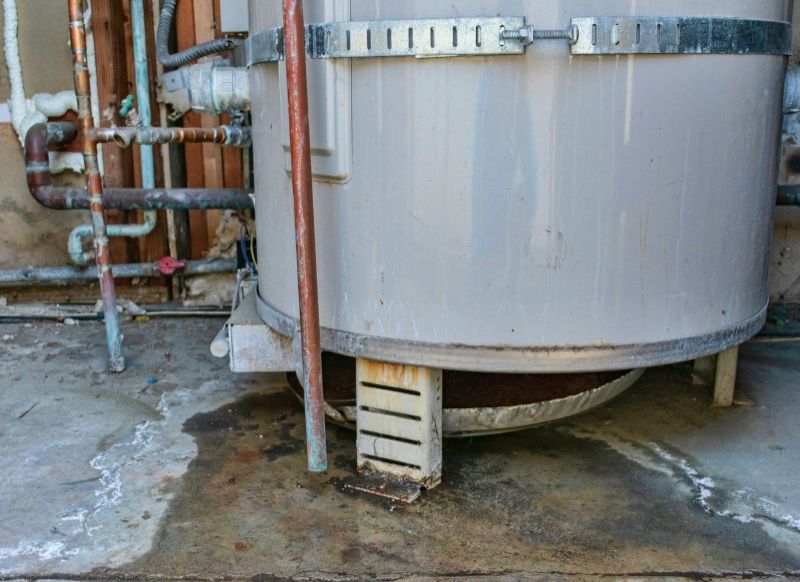It is very frustrating when your water heater starts leaking. You have a big mess to clean up, and you will need to replace the water heater eventually because it has been ruined. Here, we will discuss some of the most common reasons that people's water heaters leak so that you can avoid them in the future.
1. Roof Flashing Leaking
What you might not know is that your water heater has a very important flashing on top of it. This flashing has the sole purpose of preventing rain, sleet, snow, and ice from dripping down onto your water heater and making it rust out prematurely. The rain flaking causes the leak at this point because it causes the flashing to loosen up, and then it starts to drip down onto the water heater. The best way to avoid this type of leak is to climb up onto your roof and re-fasten the flashing so that it stays in place.
2. T&P Relief Valve Malfunctioning or Modified
The T&P (temperature pressure) relief valve is critical to the long-term health of your water heater. That is because it must vent out gases that are created in the water heating process (hydrogen, oxygen, and carbon dioxide). If this gas starts leaking into your house instead of venting properly, you have a problem with your hands. If this gas is leaking into your house, it displaces the oxygen in your house and can cause headaches, lightheadedness, and feelings of intoxication in some people. You may also have a crack or hole in your water heater where the gases are coming from. The best way to avoid this problem is to regularly call a professional plumber to test the T&P valve and to check for a crack in the hole.
3. Boiler Drain Leaking
You will usually find the water heater drain on the floor of your basement, where it is accessible. However, you should typically always run your water when it is not being used because this ensures that no minerals or sediment are building up inside. These minerals can clog up your drain and cause leaks to occur if they are pushed out when someone uses the water. Usually, gravity is enough to push the water out of your drain, but if you have a clog in it, you will need to call a professional plumber who can snake out any sediment that may be causing this problem.
4. Leak in the Supply Lines
The supply lines can usually be accessed from the basement or crawl space of your house. This is where you will usually find a rubber hose or plastic tube that goes into the water heater tank. If this develops any cracks, it may result in leaks. Fortunately, these are usually on the outside of your water heater and can be easily detected by touch. You can then just call a plumber right away to come out and replace the supply line instead of waiting until you have an emergency.
5. Tank Leaking
Finally, the tank itself can also leak in some cases. While this is much less common than other types of leaks, it still needs to be mentioned. Usually, this will cause a big puddle of water to form around your water heater, and you should immediately turn off the power or gas to the unit when you discover the source of the leak. Water heaters can rust at the seams where two metal sheets meet, and this is usually what causes this type of leak. You will need to bring in a professional plumber to drain your water heater so that you do not cause any damage to it while it is draining, and then they can replace the unit for you.
Conclusion
To summarize, roof flashing leaks, T&P valve malfunctions, and holes in the water heater are the most common reasons that a water heater will leak. If you take these steps to maintain your unit regularly then you should be able to avoid all of these problems at once. In addition, if you notice any signs of a leak such as rust, water around the unit, or a puddle of water under your unit, you should call a plumber right away. This is because if you let even one leak go unfixed it can result in major damage to your home or even cause an explosion.
